In simple terms, a superfruit is a food that contains a condensed serving of vitamins and powerful phyto-nutrients that are beneficial to human health. These foods benefit the immune system in a variety of ways and it has been found that they can even benefit the health of bone marrow. Research is only beginning to uncover some of the significant health benefits of superfruits, which may be why more people are adding these foods to their diets.
What Are Superfruits?
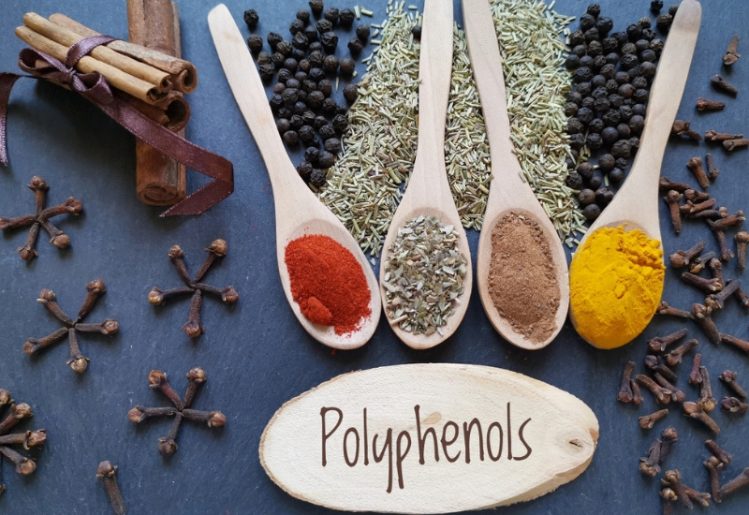 The power of superfruits to boost immunity may help stave off illness and help the body recover faster from injuries by providing the body with antioxidant-rich compounds that are called polyphenols. Polyphenols (flavonoids are just one example) are compounds that are found in many natural plant-based foods, but exist in richer concentrations in superfruits.
The power of superfruits to boost immunity may help stave off illness and help the body recover faster from injuries by providing the body with antioxidant-rich compounds that are called polyphenols. Polyphenols (flavonoids are just one example) are compounds that are found in many natural plant-based foods, but exist in richer concentrations in superfruits.
These compounds have been found to help the body fight off inflammation, while also acting as antioxidant agents. Research into the functions these compounds serve found that they can increase longevity by 30 percent or more when there’s a consistent high level of polyphenols in the body. To achieve this benefit, researchers recommend a daily intake of polyphenols that’s greater than 500 mg.
What Are the Health Benefits of Superfruits?
In addition to increasing longevity, there are many more benefits of superfruits that you can enjoy by adding these foods to your diet. Here is a short list of some of the health benefits that the polyphenols in these fruits deliver.
Regulate Blood Sugar Levels
While it’s common to experience a spike in your blood sugar levels after eating a meal, adding superfruits to your diet can combat that sudden increase. The polyphenols do this by keeping the body from breaking starch down and transforming it into simple sugars. The polyphenols in superfruits may also help regulate insulin production, so more sugars will be pushed to the cells for use as energy.
Improve Heart Health
The antioxidants that polyphenols contain help to decrease inflammation in the cardiovascular system. Since inflammation is a significant factor in causing heart disease, eating more superfruits may help you maintain a healthier heart. Additionally, researchers have found that polyphenols are effective in regulating healthier blood pressure levels and keeping LDL (bad cholesterol) levels lower. These compounds may also be effective in increasing the body’s HDL (good cholesterol) levels.
Protect Cellular Health
Since the antioxidants in polyphenols are effective in reducing inflammation, they may help protect against unhealthy cell growth. Additional research suggests that a high level of polyphenols in the blood may help prevent cancer cells from developing. Even after cancer cells have developed, test-tube research has suggested that polyphenols may help prohibit unhealthy cell growth.
Boost Digestion
If you have digestive problems, eating superfruits may help resolve those problems. This is because polyphenols also promote healthier gut bacteria, which is essential to proper digestion. A higher level of polyphenols has been linked to more diverse growth of beneficial bacteria in the gut microbiome, so peptic ulcers, inflammatory bowel disease and similar conditions may be alleviated.
Improve Cognitive Functioning
In a recent study, older adults who had experienced memory loss and difficulties in concentrating on complex tasks were given polyphenol-rich grape juice. By the end of the study, those seniors drinking the grape juice experienced improved memory and better mental focus. There’s also evidence that polyphenols can support oxygen-rich blood flow to the brain in seniors.
What Are Some of the Most Powerful Superfruits?
If you’re unsure about adding superfruits to your meal plan for each day, taking a supplement can help you boost the polyphenols in your blood supply. Resverchron is a high-quality daily supplement that incorporates the nutrients and beneficial compounds found in a broad range of superfruits. Adding this supplement to your daily routine can help you get that healthy boost even on days when you may not eat as healthily as you plan.
Here is a short list of some of the most powerful superfruits:
Plums: These fruits are known to help stave off metabolic disorders and cardiovascular-related health problems.
 Cherries: While there are a few different types of cherries, they have all been shown effective in reducing the risks of degenerative diseases in seniors.
Cherries: While there are a few different types of cherries, they have all been shown effective in reducing the risks of degenerative diseases in seniors.
Blackberries: Regularly eating these berries can help reduce the risks of degenerative disorders that affect the brain.
Strawberries: The strawberry is one of the most powerful superfruits available, because of all it can do for human health. The polyphenols in this fruit reduce the risks of developing unhealthy cell growth, heart disease, inflammation and metabolic syndrome.
Apples: The polyphenols in this fruit have been credited for extending longevity by as much as 12 percent.
Peaches: This superfruit is effective in reducing the risks of metabolic syndrome, which is common in those suffering from obesity. Peaches may also help reduce risks to your cardiovascular health.
Nectarines: Eating more nectarines will help boost your immune system due to the high content of polyphenols that they deliver.
In general, eating more plant-based fruits will expose you to a greater supply of vitamins, nutrients and other beneficial compounds. Eating more natural foods will help you live a healthier life for longer, but adding some of these superfruits to your daily routine may give you an even bigger health boost.
As research continues, we may find that polyphenols provide even more health benefits, but changing your diet now can help reduce your risks of developing many of the common health hazards mentioned here.
 To understand melatonin and its effect on the body, it’s important to first understand how and why it’s produced. Our bodies rely on a biological clock to function, known as our
To understand melatonin and its effect on the body, it’s important to first understand how and why it’s produced. Our bodies rely on a biological clock to function, known as our 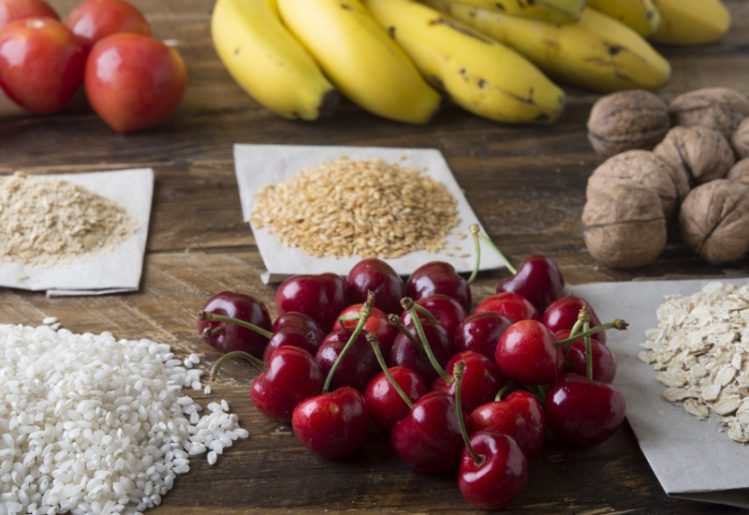 Most people don’t realize the harm they’re doing when they use their smartphone or tablet just before bed. The blue light that these screens give off disrupts the circadian rhythm, preventing the brain from producing sufficient levels of melatonin. Doctors recommend shutting off all electronic devices at least one hour before your bedtime to give the brain enough time to adjust. This will ensure the hormone will be properly released as you near your bedtime.
Most people don’t realize the harm they’re doing when they use their smartphone or tablet just before bed. The blue light that these screens give off disrupts the circadian rhythm, preventing the brain from producing sufficient levels of melatonin. Doctors recommend shutting off all electronic devices at least one hour before your bedtime to give the brain enough time to adjust. This will ensure the hormone will be properly released as you near your bedtime.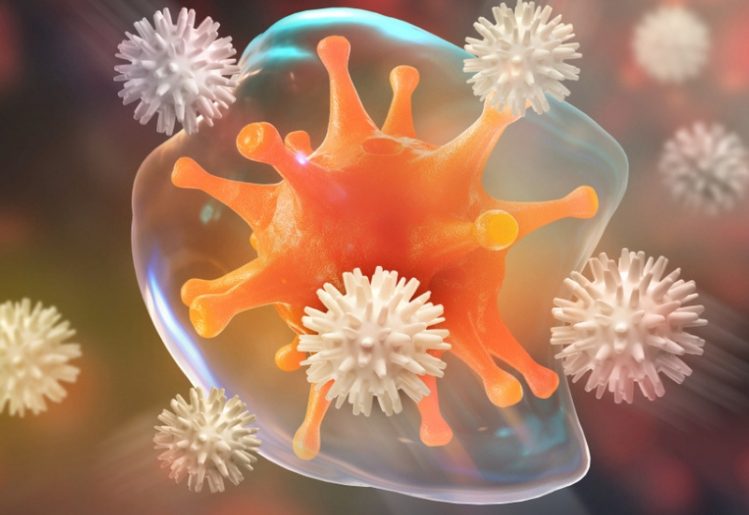 Scientists opine that aside from maintaining a healthy digestive system, probiotics also exert a positive impact upon other bodily systems including the skin, the reproductive tract and oral health. That said, researchers also stress that these substances play a most crucial role in maintaining optimal immune-system health.
Scientists opine that aside from maintaining a healthy digestive system, probiotics also exert a positive impact upon other bodily systems including the skin, the reproductive tract and oral health. That said, researchers also stress that these substances play a most crucial role in maintaining optimal immune-system health.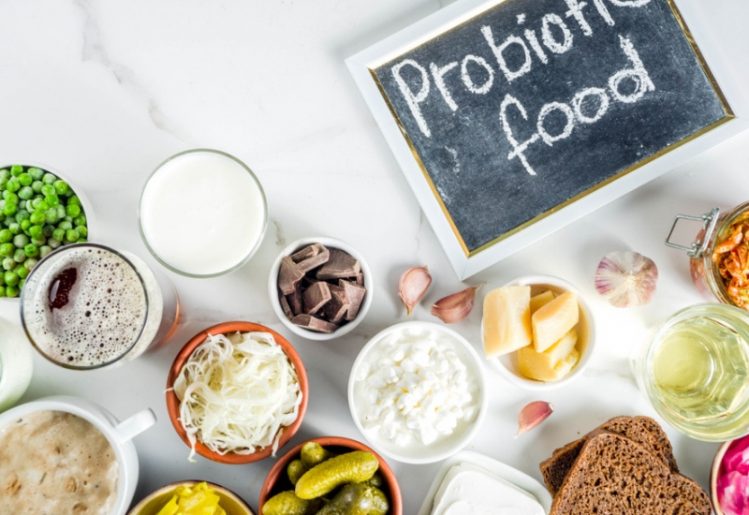 Yogurt is well-known for containing gut-stabilizing flora. However, not all yogurt contains these substances. It is important to check the labels and purchase only products designated as containing probiotics.
Yogurt is well-known for containing gut-stabilizing flora. However, not all yogurt contains these substances. It is important to check the labels and purchase only products designated as containing probiotics.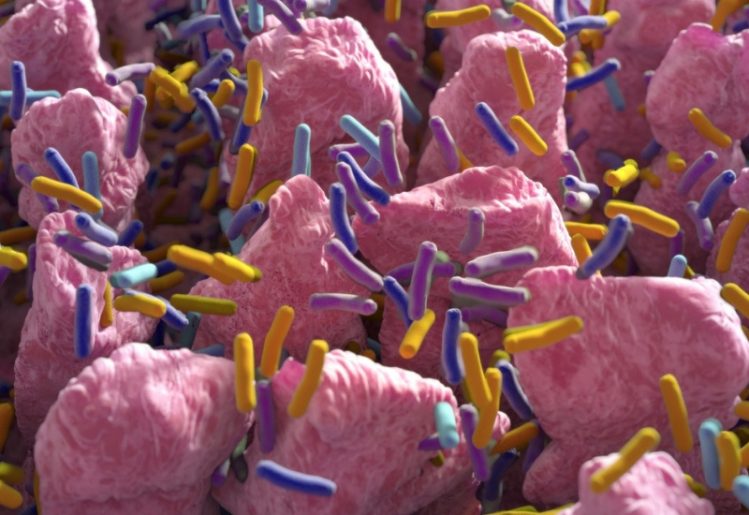 Previous studies have shown that the gut microbiome changes as we age. The recent study involved transferring the gut microbiota from 24-week old mice to mice that were only six weeks old. Within eight weeks, the research team noted that there was more advanced neurogenesis and a boost in intestinal growth in the younger mice. These changes were accompanied by an increased
Previous studies have shown that the gut microbiome changes as we age. The recent study involved transferring the gut microbiota from 24-week old mice to mice that were only six weeks old. Within eight weeks, the research team noted that there was more advanced neurogenesis and a boost in intestinal growth in the younger mice. These changes were accompanied by an increased 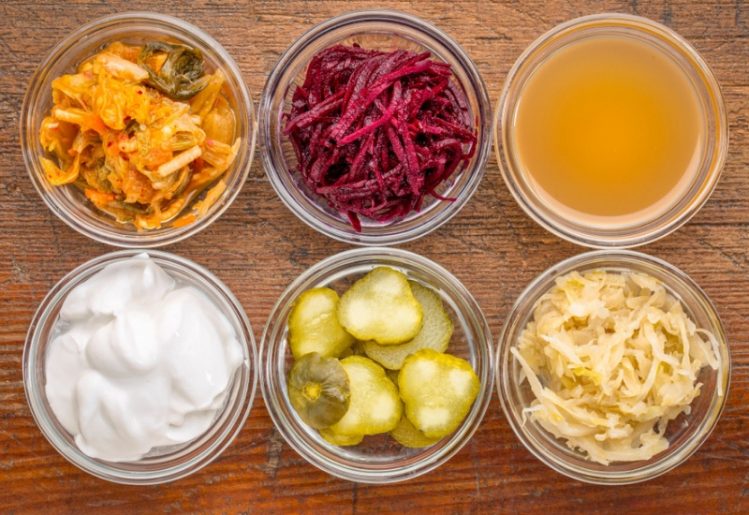 Products, such as yogurt, sauerkraut and kimchi, help convert sugars into organic acids. This process helps reduce the number of bacteria in the body that promote inflammation. Both adults and children can even help alleviate lactose intolerance by adding more plain yogurt to their diets.
Products, such as yogurt, sauerkraut and kimchi, help convert sugars into organic acids. This process helps reduce the number of bacteria in the body that promote inflammation. Both adults and children can even help alleviate lactose intolerance by adding more plain yogurt to their diets.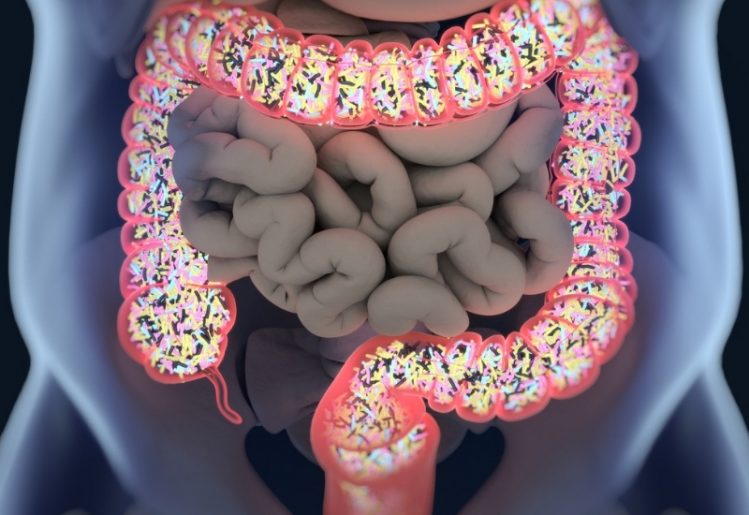 When we talk of bacteria, most people associate the term with viruses and other substances that harm the human body. While there are harmful bacteria in the gut microbiome, there are also many strains of bacteria that are beneficial to human health. Research in recent years has found that bacteria in the gut microbiome help the brain regulate emotion, boost the functioning of the immune system, protect against obesity and type 2 diabetes and help the body fight cancerous cells. These are just a few of the benefits that
When we talk of bacteria, most people associate the term with viruses and other substances that harm the human body. While there are harmful bacteria in the gut microbiome, there are also many strains of bacteria that are beneficial to human health. Research in recent years has found that bacteria in the gut microbiome help the brain regulate emotion, boost the functioning of the immune system, protect against obesity and type 2 diabetes and help the body fight cancerous cells. These are just a few of the benefits that  There are many benefits to staying hydrated, including the benefit of protecting your gut microbiome. Water helps strengthen the lining of your intestines, which is where the gut microbiome resides. Water also helps protect the bacteria in the gut by providing the nutrients that bacteria needs to exist.
There are many benefits to staying hydrated, including the benefit of protecting your gut microbiome. Water helps strengthen the lining of your intestines, which is where the gut microbiome resides. Water also helps protect the bacteria in the gut by providing the nutrients that bacteria needs to exist. Once the results were examined, the researchers found that those who drank larger quantities of coffee had a greater amount of the beneficial bacteria Faecalibacterium and Roseburia in their guts. The research team also found a higher presence of other beneficial bacteria. Additionally, the presence of a harmful bacteria, Erysipelatoclostridium, was found to be much lower. These results were found to be consistent regardless of age and the quality of the individual’s diet. Previously, Erysipelatoclostridium has been linked to metabolic syndrome. It boosts the levels of glucose and fat transporters in the small intestines, which increases the risk of obesity in individuals who eat poor diets.
Once the results were examined, the researchers found that those who drank larger quantities of coffee had a greater amount of the beneficial bacteria Faecalibacterium and Roseburia in their guts. The research team also found a higher presence of other beneficial bacteria. Additionally, the presence of a harmful bacteria, Erysipelatoclostridium, was found to be much lower. These results were found to be consistent regardless of age and the quality of the individual’s diet. Previously, Erysipelatoclostridium has been linked to metabolic syndrome. It boosts the levels of glucose and fat transporters in the small intestines, which increases the risk of obesity in individuals who eat poor diets. Living a stressful lifestyle has a range of adverse effects on your health. This includes disrupting the healthy functioning of the microorganisms in your gut. If you feel stressed, take time to meditate, read a book, or go for a walk.
Living a stressful lifestyle has a range of adverse effects on your health. This includes disrupting the healthy functioning of the microorganisms in your gut. If you feel stressed, take time to meditate, read a book, or go for a walk.